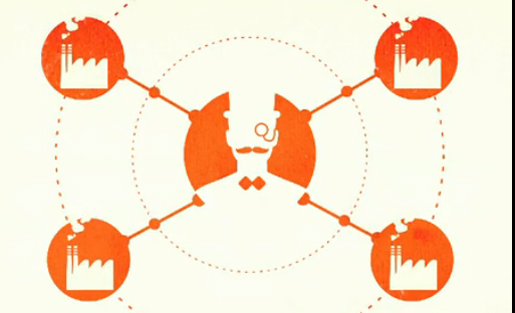Let’s say you would like to map politicians and their connections, build a semantic database of companies and top executives in a specific industry, or create a visualization of lobbyists and their clients. With Poderopedia’s new Plug & Play Platform, now you can. It’s free and open source. Fork it!
After winning the Knight News Challenge in 2011, we launched Poderopedia in Chile last fall, with the goal of mapping who’s who in business and politics in our country.
Since then, the platform has received a lot of international press coverage. Many news websites have used Poderopedia to do fact checking and background reporting and to discover newsworthy conflicts of interest with local politicians. They’ve also reused our content, thanks to our Creative Commons 3.0 license. And civic organizations, universities and media groups in Venezuela, Colombia and Bolivia are working right now with our team to create Poderopedia country chapters.
We also wanted to offer an open-source version of our platform, called Plug & Play, that would let anyone map relationships in their own communities. And, here it is!
We recently released Plug & Play 1.0, and we are very excited to see what you can do with it.
What is it?
Poderopedia Plug & Play Platform is a data intelligence management system that allows you to create and manage large semantic data sets containing information about entities (such as individuals or businesses). It allows you to map and visualize entity connections; display documents related to the entities; as well as add and show sources of information and news mentions of entities. You can display all the information in a public or private website. Your site can work as a stand-alone product or as a public searchable database that can interoperate with a newsroom website, for example, providing rich contextual information for news content using its archive.
Poderopedia Plug & Play Platform is a free open-source software developed by the Poderomedia Foundation, thanks to the generous support of a Knight News Challenge 2011 grant and a Startup Chile 2012 grant. Expanding Poderopedia to include Plug & Play is also a goal of my Knight International Journalism Fellowship.
You can use Poderopedia Plug & Play Platform for anything that involves mapping entities and connections. A few real examples:
-
NewsStack, an African News Innovation Challenge winner, will use it for an investigation by 10 media organizations into the continent’s extractive industries.
-
Newsrooms in Europe and Latin America want to use it to build their own public searchable databases of entities; repurpose their archives to develop new information products; provide context to new stories and make data visualizations — something like making their own Crunchbase.
Let your imagination run wild. Here are some ideas to get you going. You could:
- Use existing data to make searchable databases and data visualizations of information about members of your country’s legislature, what the members own, who contributes to their campaigns and how the members vote on key issues.
- Map lobbyists, their clients and which government officials they lobby.
- Create NBApedia, Baseballpedia or Soccerpedia. Show data and connections among team owners, team managers, players, as well as their stats, salaries and related business.
- Map links between the National Security Agency, PRISM and Silicon Valley.
- Keep track of foundation grants and projects that received funding.
- Anything related to data intelligence.
Core Features
Plug & Play allows you to create and manage entity profile pages that include a short bio or summary, a list of connections, newsworthy profiles, maps of their connections, documents related to the entity, sources of all the information and a news stream with external news about the entity.
The full list of features is here. These are some of the highlights:
- Entity pages
- Connections data sheet
- Data visualizations without coding
- Annotated documents repository
- Add sources of information
- Faceted Search (using Solr)
- Semantic ontology to express connections
- Republish options and metrics record
- View entity history
- Report errors and inappropriate content
- Suggest connections and new entities to add
- Send anonymous tips
How to install and get it running
Plug & Play’s documentation includes all the necessary elements and information for installing, setting up and customizing for your project, including the technical documentation and open-source technology used, so you can run the platform and website(s) as you see fit.
It also includes a theme and templates. You can customize and modify the look and feel and make all the changes you want to the theme and templates. Please acknowledge and credit the use of theme and templates as “Theme by Poderopedia Plug & Play.”
Fork it!
We’re eager to see the awesome things you create using Plug & Play. You can fork this project and deploy it with your own modifications. If you do, by all means write to us at [email protected], or tweet at @poderopedia telling us, so we can highlight your project.
Finally, if you’d like to contribute to Poderopedia Plug & Play Platform or need some assistance, please open an issue or do a pull request. This is our first public release, so there might be bugs and things we need to improve. We will do our best to answer and include your changes when possible.
Miguel Paz is a Chilean journalist and founder and CEO of Poderopedia, a data journalism website that highlights links among Chile’s business and political elites. Read about his Knight Fellowship here.
The post originally appeared on the The International Journalists’ Network’s site, IJNet.org. IJNet helps professional, citizen and aspiring journalists find training, improve their skills and make connections. IJNet is produced by the International Center for Journalists in seven languages — Arabic, Chinese, English, Persian, Portuguese, Russian and Spanish — with a global team of professional editors. Subscribe to IJNet’s free, weekly newsletter. You can also follow IJNet on Twitter or like IJNet on Facebook.


